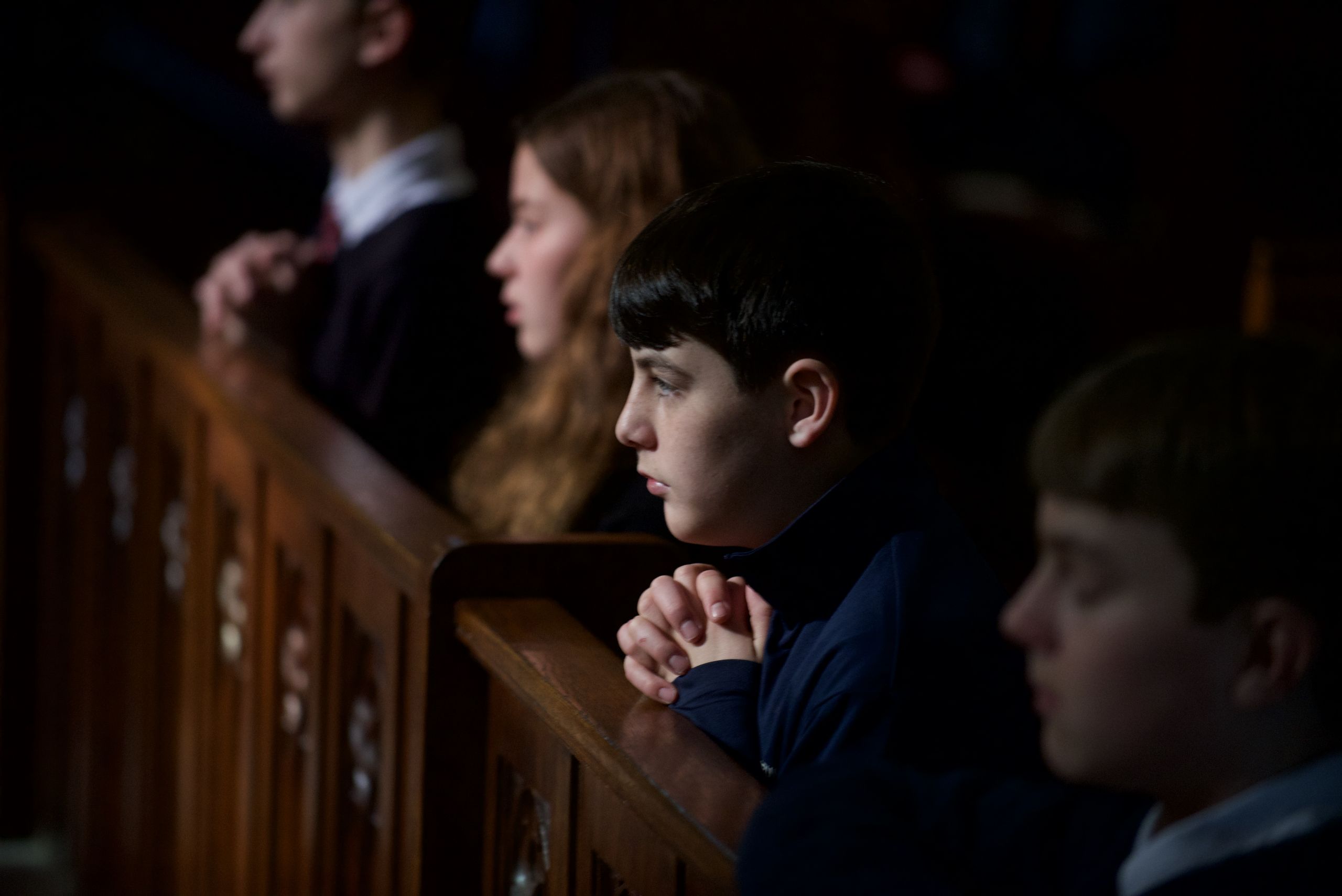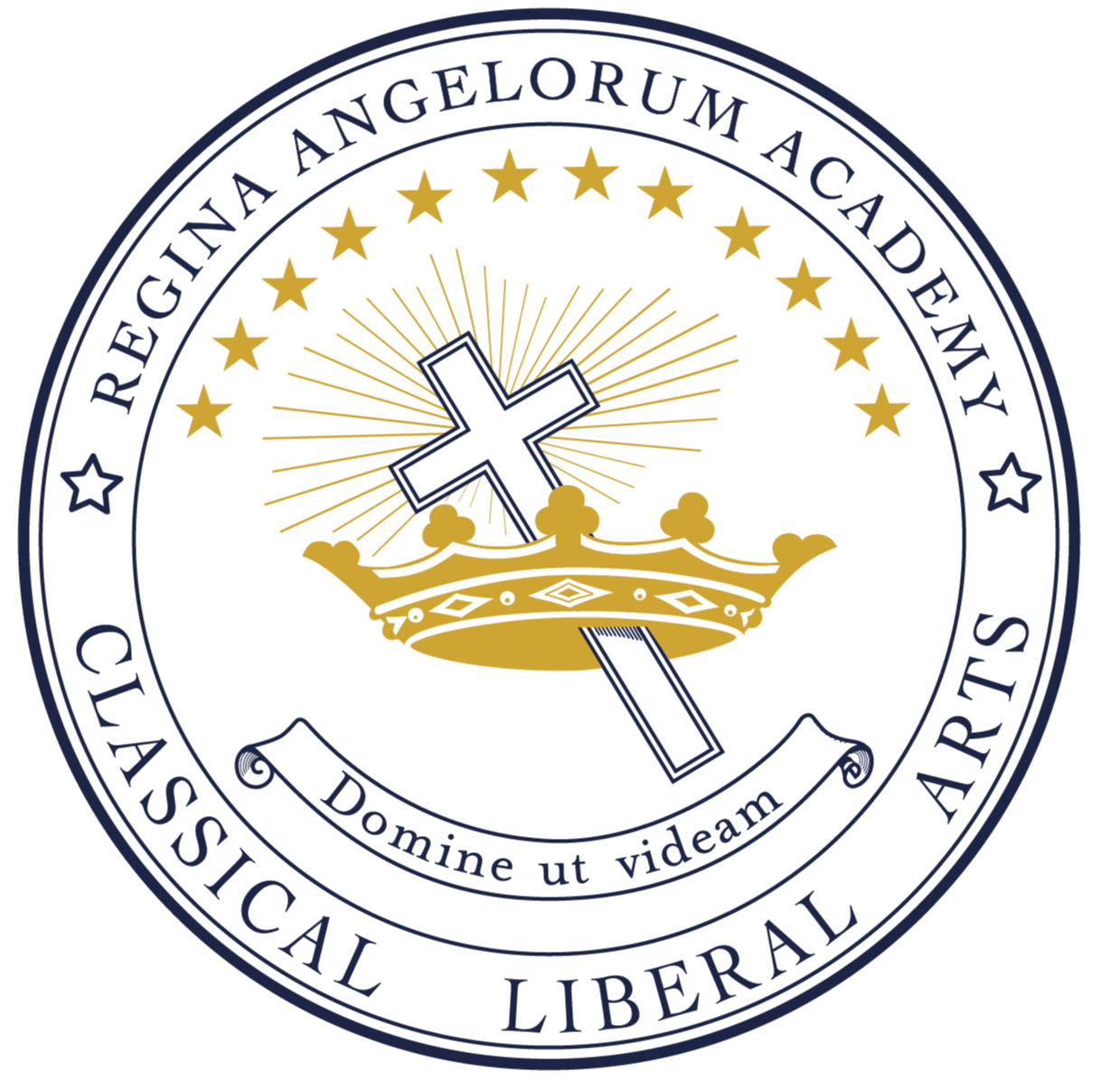
All the while, no matter what grade, our students are “grounded in piety and governed in theology” and liberal arts that they study. Students at our school plant the seeds and develop the tools of learning necessary to pursue the higher forms of learning, into which they will journey as young adults and lifelong, in the branches of Philosophy and Theology.
– Marie MacLacklin, Pre-K and Montessori Teacher
We are often asked why we offer a Catholic Classical Education Curriculum. The education that Regina Angelorum Academy offers is focused on helping children develop into fully integrated human beings whose hearts, minds, and bodies are fully formed. Many schools have limited a child’s movement through reduced recess, elimination of music, or substituting the value of a liberal arts education for a more modern and less whole-child approach. By offering a Classical Liberal Arts education through the lens of our Catholic faith, we support the child’s integral formation through a foundation in piety, gymnastic and musical formation and the liberal arts.
It all begins with a love of God. This foundation of piety forms stronger families as we love one another, our neighbor, and our community as we are called to do. How we fit into the world harmoniously within our Christian philosophy and Catholic faith allows children to gain understanding of how our theology governs us, our understanding and appreciation for the world, and continues the revelation handed down by God through Jesus Christ.
What a child loves and questions about how to live and think (piety, gymnastic, music, liberal arts, philosophy, and theology) are formed throughout a Classical model of education. Governed by Catholic theology and philosophy, this curriculum stands apart from other modern curricula. A Catholic Classical Curriculum helps children to learn, to understand, and to make moral and noble decisions based on truth that will help guide them from childhood into adulthood, and throughout their lives. In the end, a Classical education strives to direct a child to a life in Christ or as St. Ireneaus explained, “The glory of God is man fully alive, but the life of man is the vision of God.”
Piety: The proper fear and love of God and man.
The most important gift we can give children is helping guide them toward piety – love of God. This love transcends everything in our immediate and extended families and builds trust between parents and the school. At the top of the tree is Theology, which governs us throughout our lives.
Gymnastic: Training focused on the entire physical conditioning of a child which includes control over the body.
We make every effort to provide the children with playtime outdoors so that they have freedom of movement and can choose if they wish, to participate in individual or group activities, using their voices loudly or softly, and they also participate in structure play through weekly gym class and other school extracurriculars sports and clubs.
Music: Including poetry, drama, fine arts, and literature, music is a broad term that addresses what the ancients believed to be inspired by the “muses,” hence the word music.
Musical education is provided throughout the day through singing songs and hymns to more intentional musical instruction in music class for each grade. Music is not just limited to singing, playing instruments, or listening to master works. Music is also found in poetry and literature with its tone and meter and the dramatic arts with its performance and expression.
